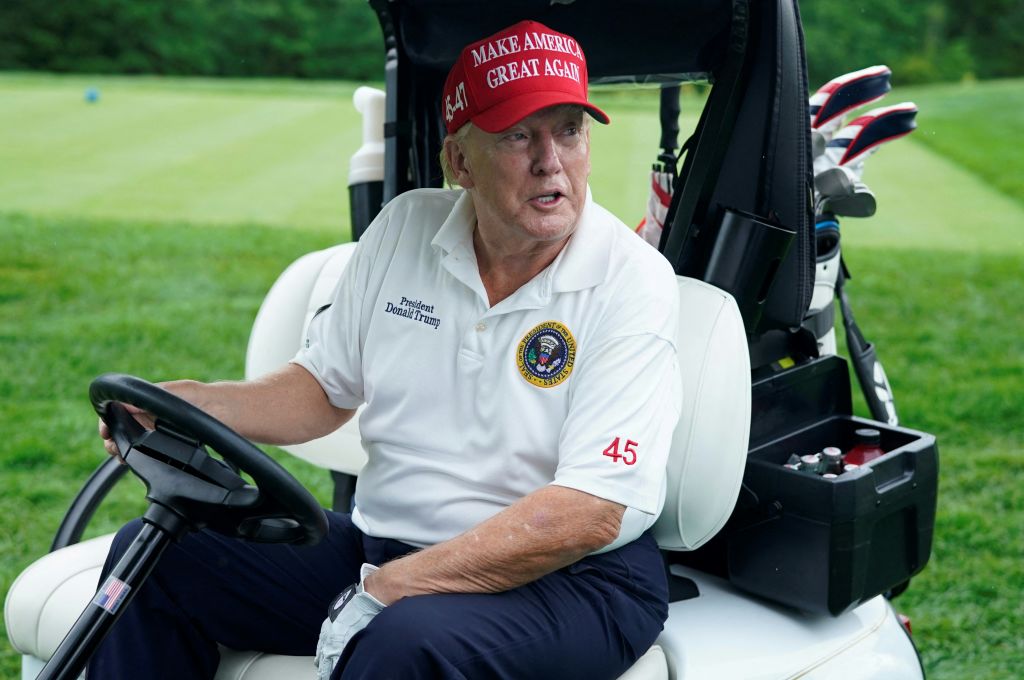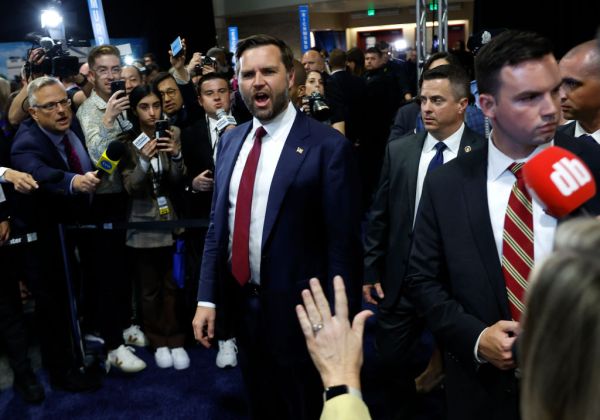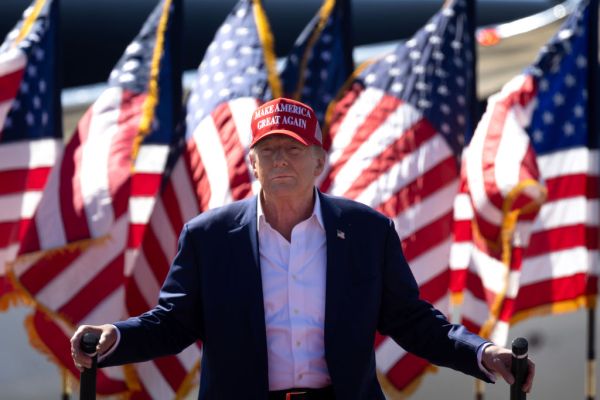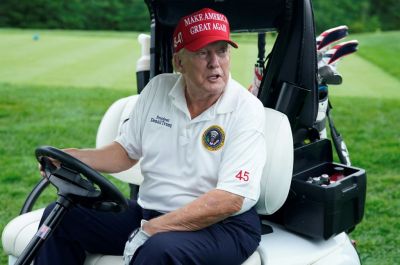Donald Trump is a funny kind of patriot.
He loves America—except for the cities, the people who live in the cities, about half of the states, the universities, professional sports leagues, Hollywood, Silicon Valley, Wall Street, the legal system, immigrants, the culture. He thinks the Capitol Police are murderers and that the FBI is a gestapo, that the government is an illegitimate junta maintained through election fraud, that the January 6 rioters are political prisoners, that the nation is a ruin, that it is “failed.” And when it fell to him to explain to Tuesday’s debate audience why he should be president, he spent most of his time repeating the praise of Hungarian autocrat Viktor Orbán.
Trump’s enemies are all Americans, his friends are all foreign dictators, and his money lives in Dubai and Indonesia. Some nationalist.
Trump lives in a very strange little bubble: His world is Palm Beach, a handful of golf courses and hotels, and Fox News. The smallness of his frame of reference is a problem for him: Trump’s remarks about the 2017 fiasco in Charlottesville really are routinely misrepresented, and he is right to try to correct the record, but going on ABC and insisting that the story had been “debunked” by “Jesse”—and expecting the ABC debate audience to know that he meant Jesse Watters of Fox News—is just one example of Trump’s inability to speak to any constituency beyond the one he already has: the constituency that is holding him hostage.
Presidential politics in September is about addition, not division or subtraction, and Trump did not add to his coalition on debate night. He doesn’t know how. Trump’s hardcore supporters are a big enough group to carry him through the Republican primary, which is dominated by a tiny number of extreme and unrepresentative partisans, but they are not a large enough group to carry him to victory on Election Day. Still, they demand constant entertainment and servicing—and Trump is too afraid of them to do anything else.
Trump has proven over and over that his rump of right-wing rage monkeys cannot deliver at the polls, not only in the 2020 presidential election he lost to Joe Biden but also in the 2018 midterms (in which Republicans lost not only the House but also seven governorships, more than 350 state legislative seats, and control of six state legislative chambers) and the Senate-race fiasco in Georgia in 2020-21, in which both Republican senators got tossed out on their ears, with Trump actively sabotaging voter-turnout efforts and turning control of the Senate over to the Democrats, and, specifically, to tiebreaking Vice President Kamala Harris, who made the most of the opportunity.
Trump’s vision of America as a failed and corrupt society has deep roots in radical populism and its right-wing variants. For white-power cranks such as David Eden Lane (whose “14 Words” pledge retains currency in corners of Trump’s world), loyalty to the United States is treason to the higher cause, in his case white nationalism: “Our race is our nation,” was his slogan. Trump is not that kind of a racist (he is a barstool bigot without the excuse of alcohol) but his brand of anti-Americanism runs parallel to that of white nationalists such as David Duke and Nick Fuentes (a neo-Nazi whom Trump was courting as recently as 2022) in that it holds that America cannot be a good or decent country if the wrong kind of people—especially dusky-hued ones such as Kamala Harris—hold political power.
Trump’s insistence that the country went from gold-plated utopia on his last day in office to Third World hellscape on Joe Biden’s first day in office is a confession, though he doesn’t intend it as one. If all that Trump was able to do as president could be undone in a moment simply because the other party happened to win an election—and Democrats will do that, from time to time—then what did he really accomplish that was worth a squirt of piss? Biden is a doddering non-entity and has a Republican-controlled House limiting his scope of action—and yet he still has been able to reverse all of Trump’s supposed victories?
That is, of course, nonsense. As Trump himself noted, the Biden administration kept in place many of the policies it inherited from the Trump administration, especially the dumbest of them, such as tariffs. Ultimately, this isn’t about policy at all—it is about tribalism and Trump’s superstitious belief that the country cannot thrive unless the highest office is held by him or by someone he approves of. This isn’t a political belief—it is idolatry.
The United States of America has had all kinds of presidents: great men such as Lincoln, vigilant patriots such as Eisenhower, scoundrels such as Nixon, would-be tyrants such as Wilson and Trump. And, throughout it all, America has been America, for better and for worse. The president isn’t the country—he isn’t even the government, only the chief executive of one branch of one level of American government.
Trump cannot see that, because his anti-Americanism and his narcissism sit on the same foundation: the belief that the most important entity in the world is Donald J. Trump.







Please note that we at The Dispatch hold ourselves, our work, and our commenters to a higher standard than other places on the internet. We welcome comments that foster genuine debate or discussion—including comments critical of us or our work—but responses that include ad hominem attacks on fellow Dispatch members or are intended to stoke fear and anger may be moderated.
With your membership, you only have the ability to comment on The Morning Dispatch articles. Consider upgrading to join the conversation everywhere.